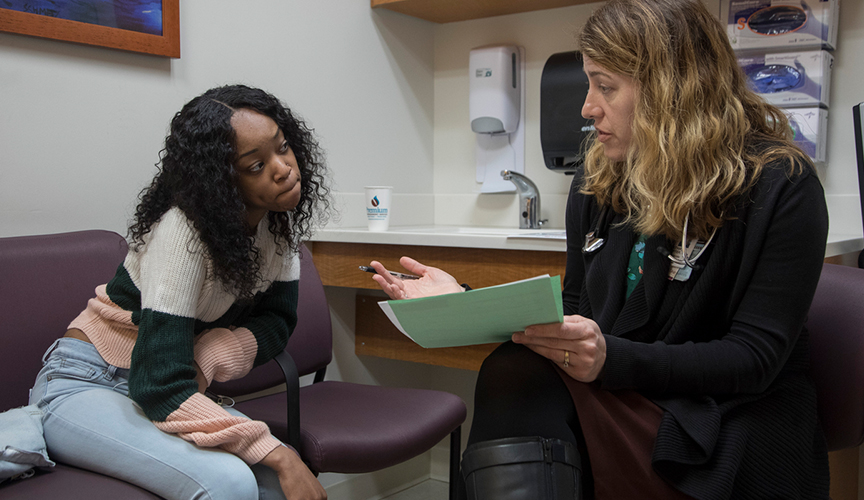Racial Disparities: Type 1 Diabetes and COVID-19
Non-Hispanic black patients with Type 1 diabetes and COVID-19 were almost four times as likely to present to the hospital with diabetic ketoacidosis (DKA) compared to non- Hispanic whites, according to an article published in The Journal of Clinical Endocrinology & Metabolism by Le Bonheur Pediatric Endocrinologist Kathryn Sumpter, MD.
The study examined 180 patients with Type 1 diabetes and laboratory-confirmed COVID-19 from 52 clinical sites, including Le Bonheur. The objective of the study was to evaluate instances of DKA, a serious complication of Type 1 diabetes, and COVID-19 and to determine whether minorities saw increased risk when controlled for sex, age, insurance and last hemoglobin A1c (HbA1c) level.

Le Bonheur Endocrinologist Kathryn Sumpter, MD (right)
“We know that Type 2 diabetes is a risk factor for worse COVID-19 outcomes, but less is known about Type 1 diabetes and COVID,” said Sumpter. “This study allowed us to examine the intersection of Type 1 diabetes and COVID while also determining the racial inequities in DKA for these patients.”
The results of the study show that non-Hispanic black patients with COVID-19 and Type 1 diabetes have additional risk of DKA beyond the risks associated with diabetes or minotirty status. Non-Hispanic blacks were more likely to present with DKA and COVID-19 (55%) compared with non-Hispanic whites (13%).
“A combination of factors related to social and structural risks leads to higher rates of DKA among minority Type 1 diabetes patients with COVID-19,” said Sumpter. “Social determinants of health, including income level, education, racial discrimination and inadequate health care access, impact these populations with devastating complications.”
According to the study, intervention in these areas is essential to prevent higher-risk outcomes that disproportionately affect minority populations.
Help us provide the best care for kids.
Le Bonheur Children's Hospital depends on the generosity of friends like you to help us serve 250,000 children each year, regardless of their family’s ability to pay. Every gift helps us improve the lives of children.
Donate Now










